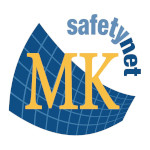Independent Investigations are a relatively new and changing field, therefore MK Safety Net will regularly be reviewing and updating these documents. The date of the latest revision will clearly be posted on each document.
Many factors make investigating reported abuse in mission communities difficult and complex. Often there are multiple legal judicial jurisdictions involved. Mission communities are frequently insular, tight-knit communities which function as an extended family. When reports of abuse have been made, they have usually been investigated by mission personnel. It is very difficult to impartially investigate colleagues who are also a part of the same “extended family” that are accused of criminal behavior. As a result, reports of abuse have historically been negated or denied.
Other factors have also added to the complexity of reporting and investigating abuse. Until very recently there was a profound reluctance to report abuse to local law enforcement, or to legal authorities in the country of origin of the alleged perpetrator. Further, the theology of forgiveness is frequently given priority over protecting vulnerable children and adults from known perpetrators. Missionaries known to be abusers have often been allowed to return to their sending churches and communities with no notice provided to church leadership or to members of the church (who often host the missionaries).
The first formal investigation into abuse began in the 1990s and more investigations followed. The reports from these investigations can be found in the Advocacy Bar in the Menu Box at the left under Reports. In recent years, new groups have become involved in doing investigations. There are no established professional standards for conducting organizational investigations into reports of abuse, and it is often difficult to find information regarding Investigation Teams. Mission agencies generally want the investigation done by personnel from within the mission community; often they obfuscate who is on the investigation team and who is funding it. This makes it difficult for former MKs and their families to know who they can trust to conduct independent investigations. In order to address this problem, MKSN has developed material to assist individuals and survivor groups.
